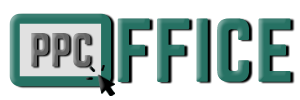
Top 10 Maintenance Tips for Facilities Managers
Introduction:
Facilities managers are responsible for the maintenance and upkeep of buildings and facilities, ensuring their smooth operation and longevity. Effective maintenance practices not only enhance the functionality and safety of the facility but also contribute to cost savings and occupant satisfaction. In this article, we present ten maintenance tips for facilities managers to optimize their maintenance programs and ensure efficient facility management.
Implement a Preventive Maintenance Program:
A preventive maintenance program is essential for facilities managers to address potential issues before they escalate. Regularly scheduled inspections, maintenance tasks, and equipment checks help identify and address minor problems, preventing major breakdowns and costly repairs. Implementing a preventive maintenance program ensures that critical systems and equipment are in optimal condition, minimizing downtime and maximizing operational efficiency.
Maintain Comprehensive Records:
Accurate and up-to-date maintenance records are invaluable when working with a facilities management company. Maintain detailed records of all maintenance activities, including dates, tasks performed, and any issues discovered and resolved. This information facilitates future maintenance planning, aids in warranty claims, and helps identify recurring problems that may require a different approach.
Prioritize Safety Inspections:
Safety should always be a top priority in facility management. Regular safety inspections and audits are crucial to identify potential hazards, ensure compliance with safety regulations, and implement appropriate corrective measures. Inspect safety equipment, emergency exits, fire suppression systems, and electrical systems regularly to maintain a safe environment for occupants.
Optimize Energy Efficiency:
Energy costs form a significant portion of facility expenses. Facilities managers can reduce energy consumption and lower utility bills by optimizing energy efficiency. Install energy-efficient lighting systems, utilize programmable thermostats, and upgrade equipment to more energy-efficient models. Additionally, encourage occupants to practice energy-saving habits such as turning off lights and computers when not in use.
Develop a Comprehensive Cleaning Program:
A clean and well-maintained facility enhances occupant satisfaction and promotes a healthy environment. Develop a comprehensive cleaning program that covers all areas of the facility. Regularly clean floors, walls, windows, and restrooms, and pay attention to high-traffic areas. Use environmentally friendly cleaning products and encourage proper waste management practices to maintain cleanliness and sustainability.
Conduct Regular Equipment Inspections:
Equipment breakdowns can disrupt operations and result in costly repairs. Conduct regular inspections of equipment such as HVAC systems, electrical panels, elevators, and fire suppression systems. Identify signs of wear and tear, loose connections, or abnormal operating conditions. Promptly address any issues discovered during inspections to avoid potential breakdowns.
Stay Updated with Manufacturer Recommendations:
Manufacturers often provide specific maintenance recommendations for their equipment and systems. Stay updated with manufacturer guidelines and recommendations for maintenance tasks and intervals. Adhering to these recommendations ensures that equipment operates optimally and warranties remain valid. Consult manufacturer documentation and reach out to representatives for guidance when needed.
Foster Vendor and Supplier Relationships:
Maintaining strong relationships with vendors and suppliers is essential for efficient facility management. Engage reliable vendors for repairs, maintenance services, and procurement of parts and supplies. Establishing long-term partnerships can lead to favorable pricing, priority service, and expert advice. Regularly assess vendor performance and seek feedback from occupants to ensure high-quality service.
Encourage Occupant Engagement:
Facilities managers should encourage occupants to play an active role in facility maintenance. Provide channels for occupants to report maintenance issues promptly, such as online platforms or dedicated helpdesk services. Educate occupants about energy-saving practices, proper waste disposal, and other facility guidelines. Engaging occupants in the maintenance process fosters a sense of ownership and cooperation.
Continuously Improve and Adapt:
Facilities management is an ever-evolving field, and facilities managers should continuously seek opportunities for improvement. Stay updated with industry trends, emerging technologies, and best practices



